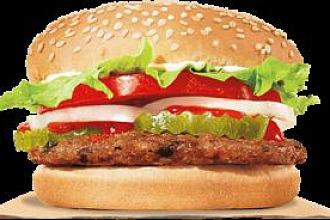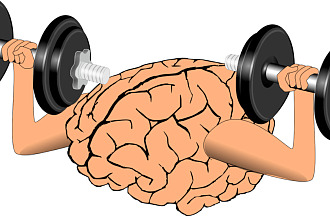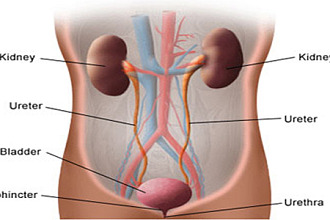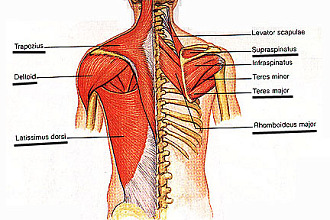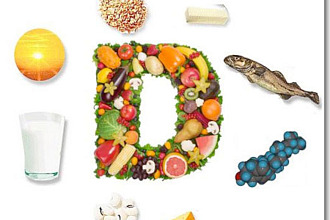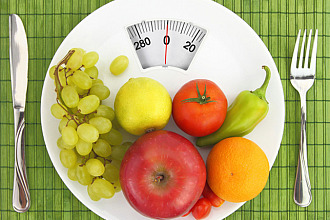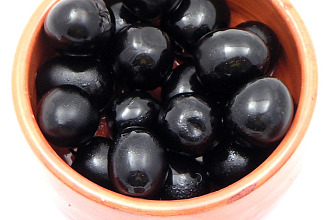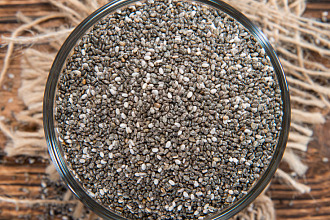Why nuts? The real question should be: why NOT nuts? If you want to live longer, then join those who eat nuts—lots of nuts!
Did you know that a daily handful of nuts not only delivers health benefits but also lowers your mortality risk? This was the conclusion of an international team of researchers who analyzed 15 studies including a total of 350,000 participants. They found that people who ate an ounce of nuts every day had a 39 percent lower risk of cardiovascular mortality. Those who ate this amount of nuts only once a week had a 7 percent lower risk.1
Nuts can also help if you are trying to lose weight. According to a 2011 Harvard study, “nuts ranked second only to yogurt as a food linked to losing weight.”2
As stewards of our health, we need to pay attention to nutritional science, so this month’s Stewpot will focus on the health benefits of nuts! Listed here are three types that you should include in your family’s regular food consumption.
WHY Walnuts?
The ancient Greeks called the walnut the royal nut, and the ancient Romans called it the nut of the gods. Both of these civilizations wrote about its medicinal properties. In the Middle Ages, people thought
walnuts were good for the brain, since they looked like little brains! Several hundred years later in the 1600s, British physician Nicholas Culpeper wrote a great deal about the healing properties of walnuts. In
modern times, we know scientifically that the walnut does indeed have many health benefits!
A one-ounce serving of walnuts (28 grams) contains roughly 182 calories, 18 grams of fat, 4 grams of protein, 4 grams of carbohydrates, 2 grams of fiber, and 11 percent of the RDI for magnesium.3
• A study reported in The Journal of Nutrition found that eating walnuts decreased the risk factors for cardiovascular disease, including lowering bad “LDL” cholesterol and blood pressure.4
• In a study of antioxidant content found in 1,113 foods, walnuts came in second. (Blackberries were number one).5
• Eating two handfuls of walnuts daily boosts sperm quality in young men. Walnuts have significant levels of omega-3 fatty acids, which some scientists think may lead to better sperm quality.6
• One study randomly assigned older rats to diet groups. One group ate a chow mix containing 2 percent
walnuts. Another group’s food contained 6 percent walnuts, and another’s 9 percent. A control group ate
no walnuts. Eight weeks later, the rats were given memory and motor tests. The animals that consumed the 2 percent and 6 percent walnut-enriched chows improved their performance in both types of tests. However, the 9 percent group had impaired reference memory. The 6 percent rat chow’s human equivalent would be eating one ounce of nuts (7-9 walnuts) each day.7
• Another study found that mice had a lower risk of breast cancer when eating the human equivalent of two ounces of walnuts every day. Those who did get cancer had smaller tumors that affected fewer mammary glands. The mice were genetically engineered to develop breast cancer, but those who ate this diet had about half the rate of malignancy.8
Almonds are mentioned a number of times in the Old Testament, and they were found in the tomb of King Tutankhamun. The Romans thought that almonds could prevent a person from becoming drunk, and they also recommended their use as a sleep aid! Modern science doesn’t support these claims, but we do know that almonds are nutritious as well as delicious.
A one-ounce serving contains 161 calories, 14 grams of fat, 6 grams of protein, 6 grams of carbohydrates, 3.5 grams of fiber, 37 percent of the RDI for vitamin E, 19 percent of the RDI for
magnesium.9
• An ounce (22 almonds) contains more protein than an egg, as well as over three grams of fiber.10
• In one study, overweight and obese people were divided into two groups and put on diets with the same amount of calories. One group ate almonds to supplement the diet; the other group ate complex carbohydrates. After 24 weeks the almond eaters had lost 62 percent more weight and 56 percent more fat.11
• Almonds are a good source of magnesium. Studies show that magnesium can help to lower blood pressure, which can reduce the risk of heart attack, stroke, and kidney failure.12
• Between 25 and 38 percent of people with type 2 diabetes are magnesium-deficient. Once this is corrected, their blood sugar levels are lowered significantly, and their insulin function improves. People
who do not have diabetes have major reductions in insulin resistance when they add more magnesium to their diets.13
Union Conference
The cashew is originally from Brazil, but sailors took the nut to India and Africa in the 1500s. Around
the world cashew leaves are used in folk medicine for ailments ranging from toothache, to diarrhea, to
malaria. In addition, its tree bark and oil are also used medicinally. Science has proven that eating the cashew nut has many health benefits.
One ounce of cashews contains roughly 155 calories, 12 grams of fat, 5 grams of protein, 9 grams of carbohydrates, 1 gram of fiber, and 20 percent of the RDI for magnesium.14
• Those who regularly substitute cashews for high-carbohydrate snacks can help control their total and LDL (bad) cholesterol levels.15
• Due to the fatty acids in cashews, mothers who eat cashews while pregnant may help their babies develop better reflexes and memory.16
• Cashews are known for their antioxidant activity, which can regulate blood glucose and assist in the treatment of diabetes.17
• Cashews are lower in fat than most nuts—mostly monounsaturated fat, which is heart healthy.18
• In one recent study, 51 individuals with elevated LDL or “bad” cholesterol ate a diet that included cashews (one to two ounces daily) or the same amount of potato chips. After four weeks, both the nut eaters and the chip eaters switched to the other diet for four more weeks. The study showed that when people ate the nuts, their total cholesterol was reduced by around 4 percent and their LDL dropped five percent.19
Resources
1-2More Good News for Nut Lovers, “Tufts University Health & Nutrition Letter,” Oct. 2015, www.nutritionletter.tufts.edu/issues/11_10/current-articles/More-Good-Newsfor-
Nut-Lovers_1807-1.html.
3Robertson, Ruairi. “The Top 9 Nuts to Eat for Better Health.” Healthline, Dec. 5, 2016, www.healthline.com/nutrition/9-healthy-nuts.
4Zanteson, Lori. “Heart-healthy Walnuts,” Environmental Nutrition, Jan. 2015, qctimes.com/lifestyles/food-and-cooking/environmental-nutrition-heart-healthy-walnuts/
article_f2ef6116-b6db-11e4-9ead-3f17500cde40.html.
5Hardy, Marci L. “Walnuts: A Nutritional Powerhouse” Re:mind, Feb. 28, 2017, affirmativhealth.com/walnuts-nutritional-powerhouse.
6Lever, Anna-Marie. “Walnuts ‘Improve Sperm Health.’” BBC News, Aug. 16, 2012, www.bbc.co.uk/news/health-19254383.
7Bliss, Rosalie Marion. “Dietary Intervention Shows Neuroprotection.” United States Department of Agriculture, March 31, 2009, www.ars.usda.gov/news-events/news/
research-news/2009/dietary-intervention-shows-neuroprotection.
8Ballantyne, Coco. “Walnuts Ward Off Breast Cancer in Mice.” Scientific American. April 22, 2009,
blogs.scientificamerican.com/news-blog/walnuts-ward-off-breast-cancer-in-m-2009-04-22.
9Robertson.
10Lori Zanteson, A Lot to Love About Almonds, Environmental Nutrition, Jan. 2011, retrieved Aug.
26, 2018, www.thefreelibrary.com/A+lot+to+love+about+almonds.-a0245302622.
11Brown, Mary Jane. “How Eating Nuts Can Help You Lose Weight,” Healthline. May 7, 2017,
www.healthline.com/nutrition/nuts-and-weight-loss.
12-13Leech, Joe. “9 Evidence-Based Health Benefits of Almonds.” Healthline. May 28, 2017. www.
healthline.com/nutrition/9-proven-benefits-of-almonds.
14Robertson.
15-18Zanteson, Lori. “Environment Nutrition: Never Eschew a Cashew!” Chicago Tribune, Feb.
5, 2018, www.chicagotribune.com/lifestyles/food/sns-201802051508--tms--foodstylts--ve20180205-
20180205-story.html.
19 “Cashews Lower Blood Cholesterol.” Berkeley Wellness, Jan. 19, 2018, www.berkeleywellness.
com/healthy-eating/nutrition/article/cashews-lower-blood-cholesterol.
Picture originally found here









